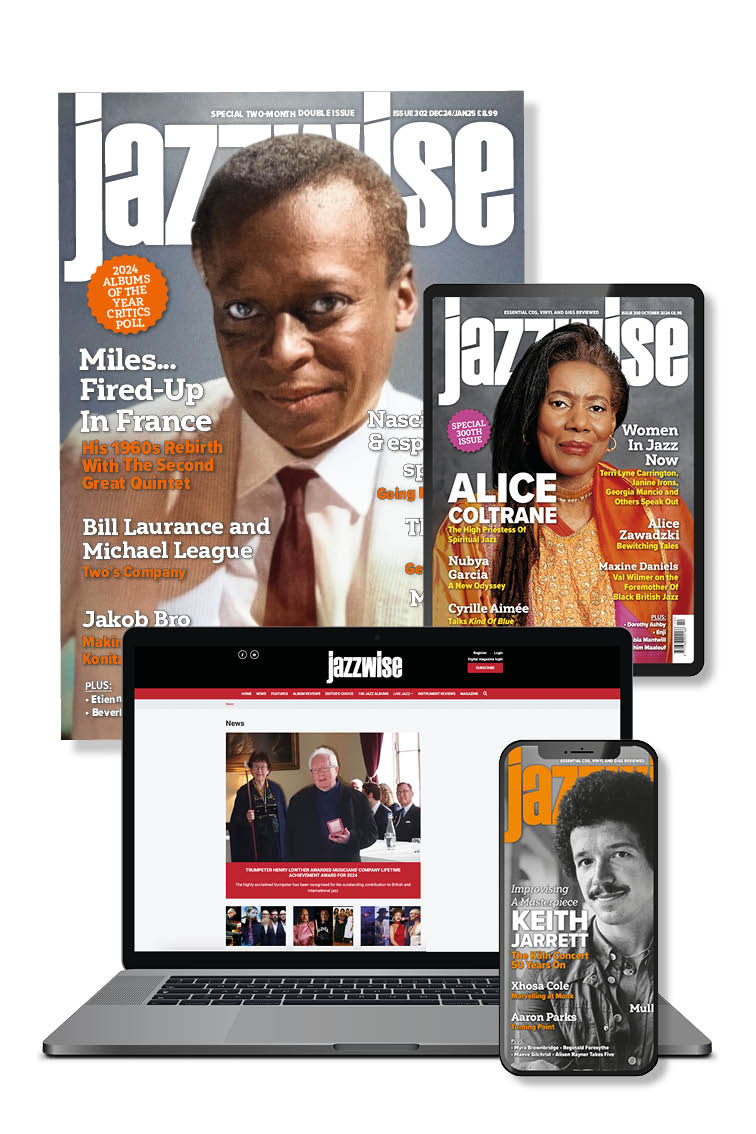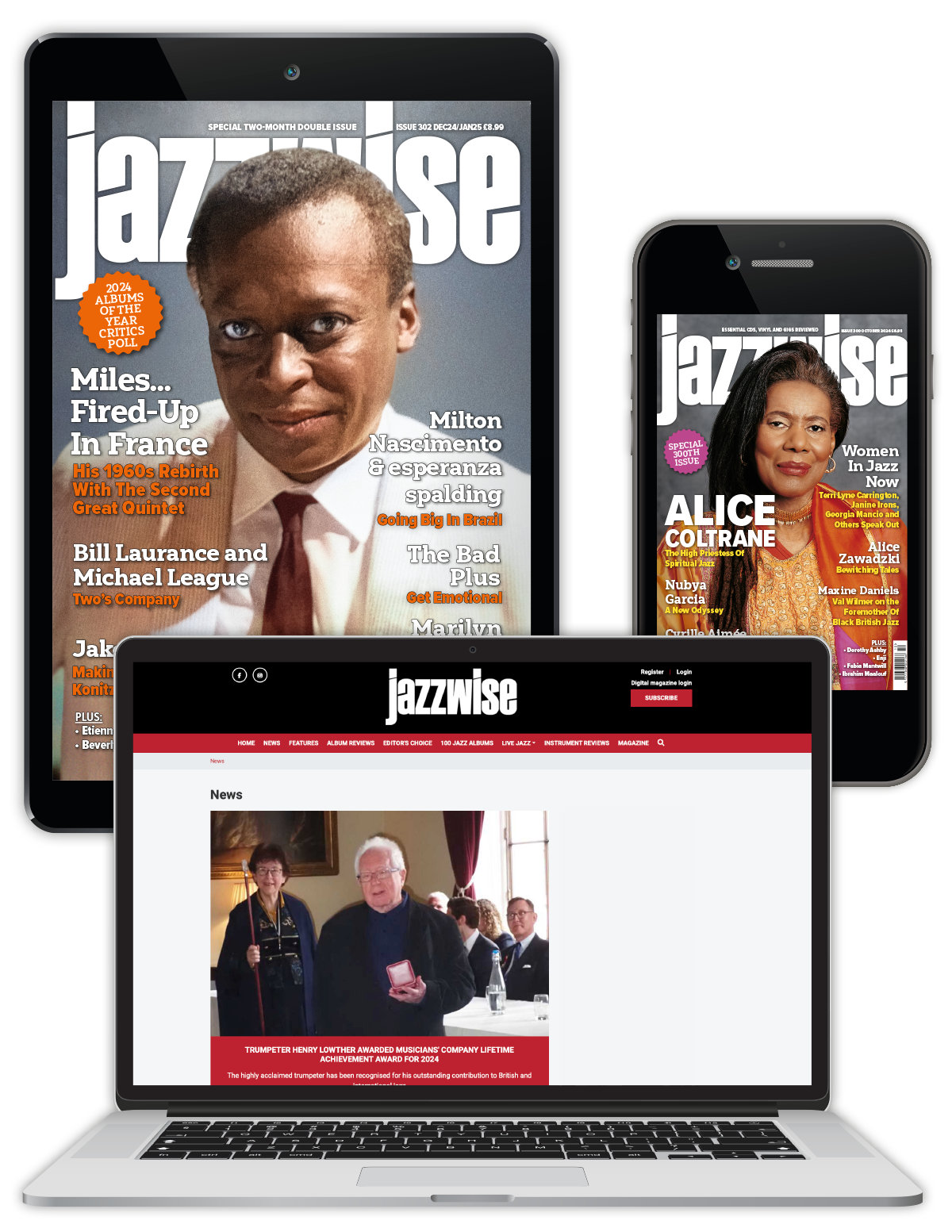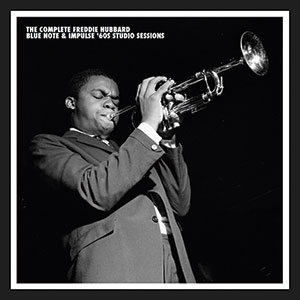Freddie Hubbard: Complete Blue Note & Impulse! ’60s Studio Sessions
Editor's Choice
Author: Brian Priestley
View record and artist detailsRecord and Artist Details
Musicians: |
Louis Hayes |
Label: |
Mosaic |
Magazine Review Date: |
Dec/Jan/2022/2023 |
Media Format: |
7 CD |
Catalogue Number: |
MD7-274 |
RecordDate: |
Rec. 19 June 1960–5 March 1966 |
The enclosed essay by Bob Blumenthal reminds us that three promising 1960s trumpeters all emerged in 1938: Hubbard, Booker Little (born just five days before Freddie) and Lee Morgan. With Little dying at the age of 23, it's hard to assess where his exciting beginnings would have taken him, while Morgan, short dead at 33, was at an interesting stage of his career.
Hubbard, at that point in the early 1970s, was just at the beginning of his most commercially successful period (although continuing his uncompromising playing live, for instance in 1977 with subsequent producer Larry Klein on bass). For a while, Freddie eclipsed Lee's popularity but in recent years, with at least three books and a movie about him, Morgan seems to have surged back in listeners’ esteem.
But you can make a case for Hubbard having been the most adventurous and compelling of the three, especially in the first half of the 1960s, which is the timescale of this excellent reissue. For listeners who were around at the time, it inevitably brings to mind the enormous impact of albums from Open Sesame (see Jazzwise 252) to Blue Spirits, via Hub Cap, Hub-Tones and Ready For Freddie. His virtuoso facility was matched by an ambiguous tone that was less openly optimistic than, say, Clifford Brown or indeed Morgan, and the construction of his solos was often unexpected.
It's fair to say that his own albums (including The Body And The Soul with a large ensemble arranged by Wayne Shorter) are more straight-ahead in conception than his recorded appearances with Ornette or Coltrane. They’re more comparable to his work with the contemporaneous Jazz Messengers of which he was a member, but the more adventurous music that was around undoubtedly rubbed off on his solo work, whatever the context.
All this early material, including several alternate takes, has been issued on CD before, but the booklet is a collectors’ item containing Francis Wolff pictures of no fewer than 24 of the musicians involved.

Jazzwise Full Club
- Latest print and digital issues
- Digital archive since 1997
- Download tracks from bonus compilation albums throughout the year
- Reviews Database access
From £9.08 / month
Subscribe
Jazzwise Digital Club
- Latest digital issues
- Digital archive since 1997
- Download tracks from bonus compilation albums during the year
- Reviews Database access

